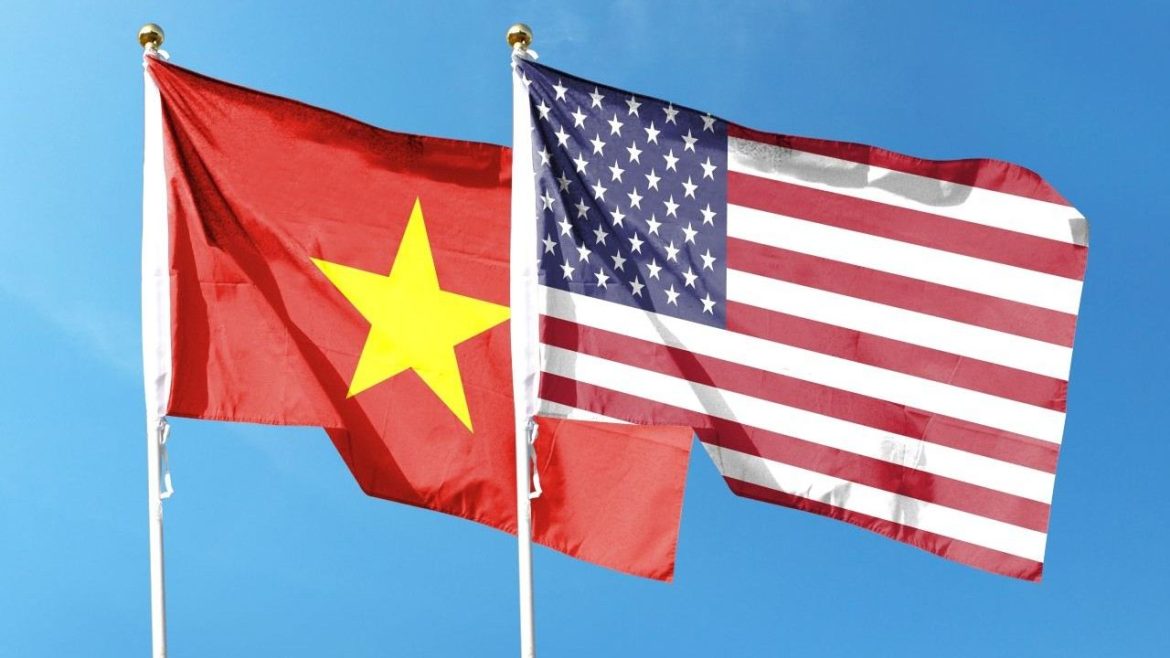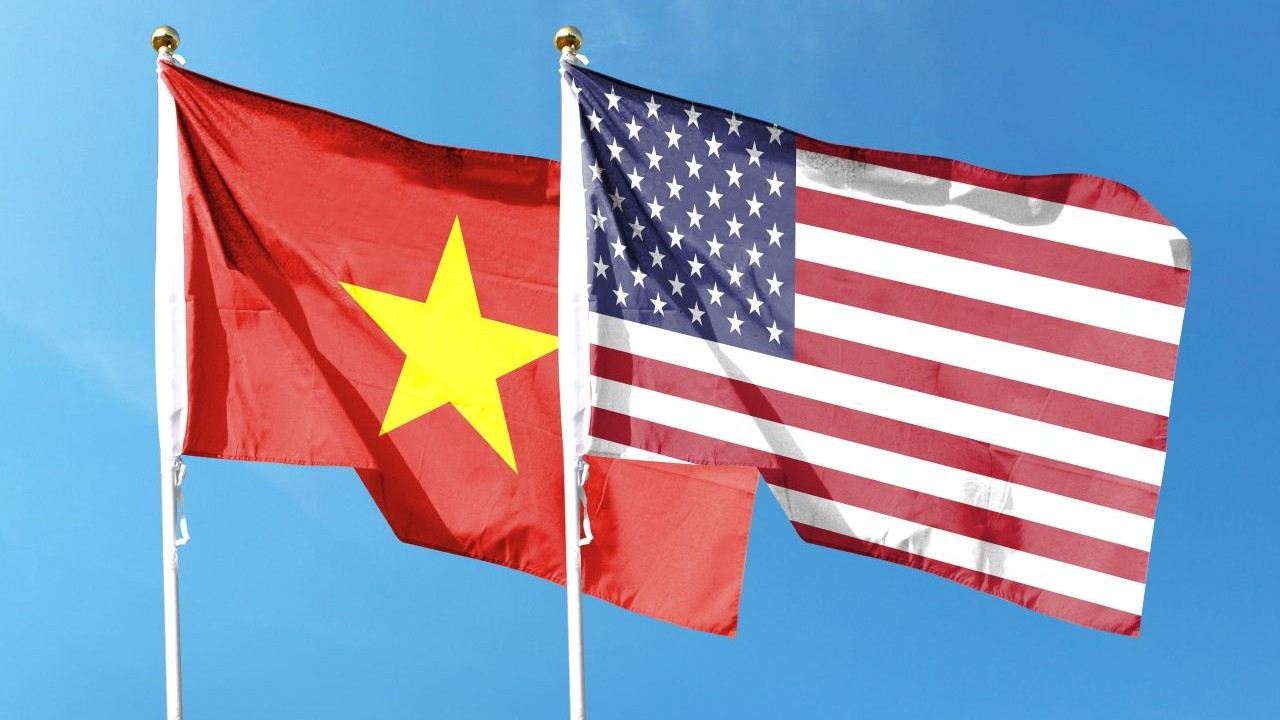The announcement of a trade deal between the United States and Vietnam, brokered by President Donald Trump, has sent ripples throughout the global financial landscape, triggering notable gains in both traditional stock markets and the cryptocurrency sector. This market reaction underscores the continued influence of political decisions on investor sentiment and the interconnectedness of global trade relations. The deal, which includes significant reductions in tariffs and improved market access, has sparked optimism across various asset classes, from Bitcoin to retail stocks. However, the long-term implications and potential challenges of this agreement warrant a closer examination.
A Rally Across Asset Classes
The immediate aftermath of the announcement saw a broad-based rally. Bitcoin experienced a significant upswing, surpassing key resistance levels and fueling renewed enthusiasm in the cryptocurrency market. Traditional stock markets responded positively, with the S&P 500 and Nasdaq Composite reaching session highs. Specific sectors, particularly retail and apparel, witnessed considerable gains, driven by the anticipated reduction in tariffs and the potential for increased trade volume.
Bitcoin’s Bullish Momentum: The surge in Bitcoin’s price suggests that investors view the trade deal as a positive signal for the overall economic environment. Cryptocurrency, often seen as a risk-on asset, tends to perform well when investor confidence is high. The agreement may be interpreted as a sign of stability and growth in the global economy, making Bitcoin a more attractive investment. Furthermore, the association of Trump with cryptocurrency, especially in light of his ventures in the space, could be contributing to the positive sentiment. Trump’s recent forays into the crypto market, including his endorsement of certain digital assets, have further cemented this perception. The deal’s potential to boost economic activity and reduce trade barriers aligns with the broader narrative of a bullish crypto market.
Stock Market Gains and Sector-Specific Impacts: The S&P 500’s rise to record highs reflects a broader optimism across the market. The trade deal’s potential to reduce costs for businesses and increase market access in Vietnam appears to be driving investor enthusiasm. Retail and apparel stocks, particularly those with significant operations or supply chains in Vietnam, experienced notable gains. Companies like Nike and Lululemon, which have a substantial presence in Vietnam, saw their stock prices increase as investors anticipated benefits from reduced tariffs and improved trade conditions. The apparel sector, in particular, stands to gain significantly from the deal, as Vietnam is a major supplier of textiles and garments to the U.S. market. The reduction in tariffs is expected to lower production costs and improve profit margins for these companies.
The Drivers of Optimism
Several factors contribute to the market’s positive response to the U.S.-Vietnam trade deal. These include:
Reduced Tariffs and Trade Barriers: A key element of the agreement is the reduction of tariffs on goods traded between the two countries. This translates to lower costs for businesses, increased competitiveness, and potentially higher profits. The previously discussed potential rise to 46% tariffs on Vietnamese goods shipped to the U.S. is now reported to be much less at 20%. The promise of tariff-free access to Vietnam’s markets for U.S. companies is a significant incentive for investment and expansion. The reduction in tariffs is expected to benefit a wide range of industries, from electronics to agriculture. For example, U.S. agricultural exports to Vietnam, which include soybeans, poultry, and seafood, are likely to see increased demand due to lower tariffs. This, in turn, could boost the revenues of U.S. farmers and agribusinesses.
Improved Trade Relations: The trade deal signifies a strengthening of economic ties between the United States and Vietnam. This improved relationship can foster greater cooperation in other areas, such as technology, manufacturing, and investment. The deal may also be viewed as a strategic move to counter China’s economic influence in the region, further boosting investor confidence. The U.S. and Vietnam have been working to deepen their economic ties, and this deal is a significant step in that direction. The agreement includes provisions for increased investment in Vietnam’s technology sector, which could lead to the development of new industries and job creation. Additionally, the deal is expected to enhance supply chain resilience, as companies look to diversify their manufacturing bases away from China.
Investor Sentiment and the “Trump Effect”: Donald Trump’s involvement in brokering the trade deal adds another layer of complexity to the market’s reaction. His policies and pronouncements have often had a significant impact on investor sentiment. The deal may be seen as a continuation of his pro-business agenda, which includes reducing regulations and promoting economic growth. Trump’s recent ventures into the crypto space will no doubt continue to associate him with the cryptocurrency market, and this deal will add to the positive outlook investors have when he is involved. The “Trump Effect” refers to the market’s tendency to react positively to news and policies associated with the former president. His track record of negotiating trade deals and his pro-business stance have contributed to this phenomenon. Investors are likely to view the U.S.-Vietnam trade deal as a positive development, given Trump’s involvement and his history of advocating for favorable trade terms.
Potential Challenges and Long-Term Implications
While the initial market reaction to the trade deal has been positive, several potential challenges and long-term implications warrant consideration:
Inflationary Pressures: While reduced tariffs can lower costs for businesses, increased demand resulting from the trade deal could also lead to inflationary pressures. If demand outstrips supply, prices may rise, potentially offsetting the benefits of lower tariffs. It is important to note that the report mentions rising inflation worries, specifically when Donald Trump’s victory was secured. The U.S. Federal Reserve has been closely monitoring inflation trends, and any significant increase in prices could prompt a tightening of monetary policy. This, in turn, could lead to higher interest rates and a potential slowdown in economic growth. Investors should be aware of these risks and consider how they might impact their portfolios.
Impact on Other Trade Relationships: The U.S.-Vietnam trade deal could potentially impact trade relationships with other countries. Some nations may feel disadvantaged by the preferential treatment given to Vietnam, leading to trade disputes or retaliatory measures. The reports also noted how China may react to such a deal. China, in particular, may view the deal as a threat to its economic interests in the region. This could lead to increased competition and potential trade tensions between the U.S. and China. Additionally, other Southeast Asian countries may seek similar trade agreements with the U.S., which could further complicate the regional trade landscape. Investors should monitor these developments and assess their potential impact on global trade dynamics.
Sustainability of the Rally: Market rallies based on political events or announcements can be short-lived. The long-term sustainability of the current surge will depend on the actual economic impact of the trade deal and the ability of businesses to capitalize on the new opportunities. Investor sentiment can be fickle, and any negative news or developments could quickly reverse the gains. For example, if the trade deal fails to deliver the expected benefits or if geopolitical tensions escalate, the market’s positive reaction could be short-lived. Investors should remain vigilant and be prepared to adjust their strategies as new information becomes available.
The Role of Geopolitics: Geopolitical events and tensions can significantly influence trade relations and market stability. Any escalation of conflicts or trade disputes could disrupt supply chains and undermine the benefits of the U.S.-Vietnam trade deal. The ongoing tensions in the South China Sea, for instance, could impact trade routes and supply chains in the region. Additionally, the U.S.-China trade relationship remains a critical factor in global trade dynamics. Any deterioration in this relationship could have far-reaching consequences for the U.S.-Vietnam trade deal and the broader global economy. Investors should stay informed about geopolitical developments and assess their potential impact on their investments.
A Cautious Optimism
The market’s positive response to the U.S.-Vietnam trade deal is understandable given the potential benefits of reduced tariffs, improved trade relations, and increased market access. However, investors should exercise caution and consider the potential challenges and long-term implications. While the initial surge reflects optimism, the sustainability of the rally will depend on the actual economic impact of the deal and the broader geopolitical context.
Navigating the New Landscape: Businesses and investors need to carefully assess the opportunities and risks presented by the U.S.-Vietnam trade deal. This includes analyzing the potential impact on supply chains, pricing strategies, and investment decisions. Staying informed about the latest developments in trade policy and geopolitical events is crucial for making sound financial decisions. For example, companies with significant operations in Vietnam should evaluate how the deal might affect their cost structures and competitive positioning. Investors should diversify their portfolios to mitigate potential risks and capitalize on new opportunities. Additionally, they should monitor key economic indicators, such as inflation rates and trade volumes, to gauge the deal’s impact on the broader economy.
The “Trump Bump” and Beyond
The market’s reaction to the U.S.-Vietnam trade deal exemplifies the “Trump Bump” phenomenon, where political events and announcements can trigger significant market movements. While these bumps can provide short-term gains, investors should remain focused on the underlying fundamentals of the economy and individual companies. A long-term perspective, combined with careful analysis and risk management, is essential for navigating the complexities of the global financial landscape. The potential for a “Trump Trade” surge again is more than likely given his associations with the crypto market, and his history with real estate. While it is too early to accurately depict the short and long-term effects of his involvement, it is no doubt, there will be an effect. Investors should not rely solely on political events to drive their investment strategies. Instead, they should focus on the fundamentals of the companies and sectors they invest in. This includes analyzing financial statements, assessing competitive advantages, and evaluating long-term growth prospects. By taking a disciplined and informed approach, investors can position themselves to benefit from the opportunities presented by the U.S.-Vietnam trade deal while mitigating potential risks.





